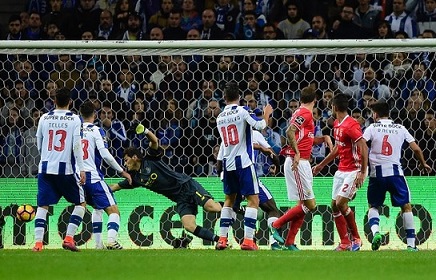Portuguese football blends compact team shape, elite technique and a deep academy culture that keeps producing world‑class players and coaches.
Many fans keep up to date on their phones — Hollywoodbets mobile download is one popular route — as a nation of ~10 million won Euro 2016, the inaugural UEFA Nations League (2019), and its clubs regularly reach European knockout rounds. Here’s what makes Portuguese football special — and why it’s worth your attention.

Brief history & DNA
- Golden names: Eusébio, Luís Figo, Rui Costa — icons of earlier eras. Today: Cristiano Ronaldo, Bernardo Silva, Bruno Fernandes, Rúben Dias.
- National team: The surge began in the 2000s — regular semi‑finals and finals at major tournaments, crowned by Euro 2016 and Nations League 2019.
- Game model: Technical school, compact lines, flexible pressing, and sharp “moments” play — set‑pieces and fast transitions.
Domestic ecosystem: leagues & trophies
- Primeira Liga — the top tier (18 clubs).
- Liga Portugal 2 — second division.
- Taça de Portugal (Cup) and Taça da Liga (League Cup) — domestic cups.
- Supertaça Cândido de Oliveira — the season’s curtain‑raiser.
The Big Three: Benfica, Porto, Sporting
- Benfica (Lisbon) — massive fanbase, Seixal academy, aggressive promotion of youth and value creation in the transfer market.
- Porto — a winning mentality, compact, intense style, and surgical scouting.
- Sporting (Lisbon) — the Alcochete academy produced Figo and Ronaldo; recent years underpinned by modern, high‑intensity football.
Academies and the transfer model
Portugal is one of Europe’s best incubators. Clubs develop teenagers, give early first‑team minutes and sell their talented players to the top leagues. That funds a cycle: scouting → development → capitalisation → reinvestment in infrastructure and coaching.
Output profile: Over the last decade: centre‑backs (Rúben Dias), playmaking midfielders (Bernardo Silva, Vítinha), versatile attackers (João Félix, Rafael Leão) and dynamic wing‑backs/box‑to‑box profiles.
Coaching school
From José Mourinho and AVB to Jorge Jesus, Sérgio Conceição and Rúben Amorim, Portuguese coaches are in demand worldwide. Hallmarks: micro‑rules in pressing, standardised build‑up patterns and fast adaptation to squad strengths.
Why Portuguese football matters globally
- Export of quality: Portuguese players adapt quickly in the Premier League, La Liga, Serie A and the Bundesliga.
- Europe: The Big Three consistently reach UEFA Champions League and Europa League knockout rounds.
- Market & scouting: Smart contracts, buy‑out clauses and strong player‑branding make the league a recruiting hub.
How to follow and what to watch
- Start with Big Three fixtures.
- Track the youth: Sporting U‑23 and Benfica B often showcase future stars.
- Tactical showdowns in O Clássico (Porto vs Benfica) and the Lisbon Derby (Benfica vs Sporting) are masterclasses in the local school.
Key takeaways
- Portuguese football = academies + exports + coaching school.
- The Big Three shape the league’s identity and global brand.
- Style: technique, compactness, smart pressing, set‑piece value.
FAQ
What defines the Portuguese school? Early tactical literacy, strong individual technique and situational pressing.
Why do clubs sell so much? It’s a sustainable business model: transfer profits are reinvested into academies and infrastructure.
Which coaches to watch? Rui Borges (Sporting) as a model of modern positional interplay; Vasco Botelho da Costa (Moreirense) and João Pereira (Casa Pia) as two up-and-coming coaches with a high ceiling from the Portuguese school.

